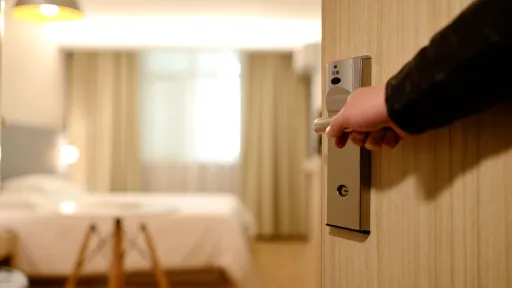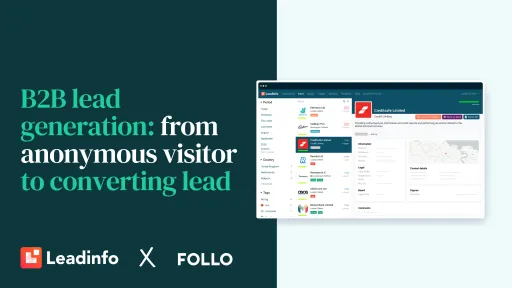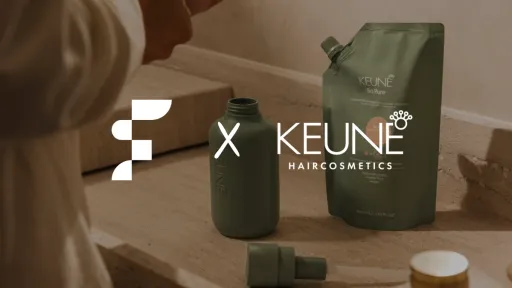In today's digital world, advertising campaigns are a crucial part of the marketing strategy for hotels. One of the most effective ways to reach potential customers is through Google Ads campaigns. Google Ads offers various tools and options for hotel marketers to target their audience, showcase their unique offers, and ultimately generate more bookings. In addition to search campaign results, hotel campaigns can significantly contribute to increasing the visibility and revenue of hotels. In this blog, we will explore the different possibilities that Hotel Ads can offer and how they can be best utilized to achieve optimal performance.
But what exactly are Hotel ads? With Hotel ads, hoteliers can bid on hotel advertisements that appear when a traveler searches for hotels on Google Search or Maps. These ads appear in a hotel booking module that shows photos of the hotel, amenities, prices, and a link to book the hotel.
There are three different ways hotels are visible through Hotel ads: general searches, specific searches, and the Google Maps environment.
1. General searches: In general searches, various hotels are displayed in the search results within Google's search environment. When no location is entered, Google also adjusts the ad based on the user's current location.
2. Specific searches: When a user is further along in the purchase process and has a specific hotel in mind, a specific ad is displayed with a search ad of the hotel shown on the left side of the search window, including price comparisons and images, while additional information about available rooms and prices is displayed on the right. This further reduces competition for the hotel.
3. Google Maps environment: When an ad is clicked, the user is redirected to the Google Travel environment. This is where Google collects and processes all travel-related data within a convenient environment. When a hotel campaign is set up in Google Ads, the hotel also becomes visible here.
Google Hotel Ads is not only for hotels but offers various types of accommodations to make it easier for people to find the right location. There are three different categories that accommodations fall into: hotels, vacation rentals, or outdoor lodgings. This allows you to advertise with all accommodations relevant to making a trip, such as vacation homes, holiday parks, motels, hostels, and bed and breakfasts.
If you as an advertiser are unsure about the type of accommodation you fall under, answer the following questions to determine which category you belong to:
- Do you have a reception or on-site management?
- Do you accept guests who arrive at night?
- Do you have the ability to accommodate guests without reservations?
If you answer all these questions with 'yes', you are probably a hotel. If you answer one or more questions with 'no', you are probably a vacation rental or outdoor lodging.
But what are the benefits of using Google Hotel Ads?
- Attract travelers who are actively searching for a hotel in a specific area. Ads include your business name, hotel name, price, and textual highlights to emphasize the unique benefits of booking through the site.
- Adjust hotel prices based on hotel availability and travelers' itineraries.
- Direct customers to your website to book. Since the traffic goes to your website, you can analyze the traffic yourself and create audiences based on this data.
- Pay only for an ad when someone books a hotel, or adjust your bids based on factors such as device type, the traveler's country, or length of stay.
- Be visible when the hotel is available. Through a feed connection, ads are only shown when the accommodation is actually available.
- Free booking links. Even when you're not advertising, you can already be visible with your hotel through organic placements.
- Advertise further in the customer journey because Hotel Ads are often shown for searches that are further along in their purchase process.
The different types of Bidding Strategies for Hotel Ads
Just like with the more well-known channels such as Google Display and Search, there are different bidding strategies that can be used. With hotel campaigns, you can bid when someone completes a booking or when they click on your ad:
- Commission (per conversion): you only pay when a traveler books your hotel, depending on the payment model you choose.
- Commission (per stay): you only pay when a traveler completes a stay booked through hotel ads. This is only available for selected partners.
- CPC bid: you pay when a traveler clicks on your ad. For CPC bidding strategies, you can adjust your bid based on factors such as device type, traveler's location, length of stay, and other factors.
- Enhanced CPC (vCPC): automates bid adjustments for a maximum CPC bidding strategy.
How to get started with creating a hotel campaign?
We recommend always setting up your campaigns in Google Ads through a connection with the Hotel Center account. The Hotel Center account is actually the variant for hotels, similar to the Merchant Center for Google Shopping. To make this connection, you need access in expert mode. The advantage of these hotel ads in Google Ads is that you can benefit from using increased campaign limits and have the ability to more specifically divide your campaigns into different groupings. Additionally, this allows you to easily compare your campaigns with ongoing Search campaigns based on ad spend and performance.
Before you can organize your hotel campaigns, it is important to upload a hotel list with the necessary information in Hotel Center. This can be done using a CSV or XML file that includes characteristics such as name, address, geocode locations, phone numbers, website URLs, and more. An example of a hotel list based on an .xml list.
The more and higher quality the information you provide about your accommodation, the better the ad ranking in Google will be.
Subdivision of your hotel campaigns
After linking Google Ads and the Hotel Center, set up a hotel campaign and ad group. From that point on, it is important to subdivide your ad group into hotel groups. You create these hotel groups to distinguish between different accommodations. By distinguishing between hotel groups, you can set bids based on the different characteristics of your hotels and also ensure that you exclude certain hotels from your hotel groups. These hotel groups are similar to the product groups within Merchant Center.
Automatic rules
For your campaigns, it is useful to set automatic rules. This way, you can set the status of your ads, budgets, bids, and more. For example, when you want to boost visibility on certain keywords once you are no longer visible on page 1.
Audiences in Hotel Ads
Just like with Search and Google Display, you can manage different audiences when using Hotel ads in Google Ads. When setting up an audience, you can choose from different combinations of the audiences below. Additionally, you can set bids for the different audiences and view reports on their performance.
Use one or more of the following audiences for optimal performance:
- In-app users
- Website visitors
- Similar audiences
- Custom segments
- Customer lists
Hotel Callouts – Extensions
Also within Hotel ads, there is a form of extensions possible, called hotel callouts. This allows you to add extra information to your ads, such as USPs of the rooms and other relevant information for travelers. The rule also applies here: ad groups take precedence over campaign extensions, so you can always show the most relevant content.
Room bundles
Within Hotel ads, you can choose not only to show your cheapest hotel rooms through the use of room bundles. This is an opportunity to sell additional deals such as breakfast or other services. Additionally, you increase your ad size and also reduce competition here.
Conclusion
All in all, Google Hotel Ad campaigns offer many opportunities for apartment, camping, and hotel owners to be more visible in Google Search. In addition to regular search campaigns, Hotel Ads are a good extension for more visibility and a focus on purchases further down the funnel. This is because the search intent is often further down the funnel, and potential bookers receive more information in the Search environment. Meanwhile, in combination with your Search results, you occupy a large part of the window, making competitors less visible.
Want to know more about all developments, updates, and possibilities within Hotel Ads, have another online marketing question, or want to outsource your SEA issue? Feel free to contact us!




